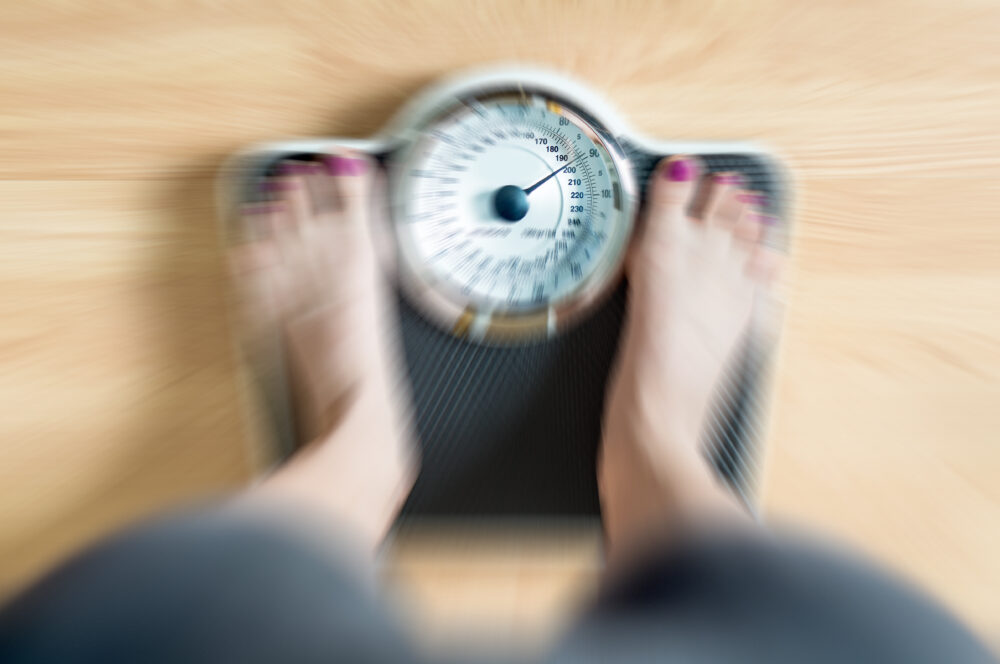In today’s fast-paced and ever-evolving society, it’s easy to overlook subtle signs that you’re not just coping with the usual stresses of daily life but are actually facing more significant challenges than many around you. This article sheds light on surprising indicators that might suggest you’re struggling more than the average American. By recognizing these signs early, you can seek the necessary support and make changes to enhance your well-being.
1. Constant Fatigue Despite Adequate Sleep

If you’re getting a full night’s sleep but still feel exhausted, it might not just be a busy schedule wearing you down. Persistent fatigue can be a sign of underlying health issues, such as thyroid problems or depression, which require professional attention. It’s also a key indicator that the stress and pressures of life could be more burdensome than you realize.
2. Difficulty Making Routine Decisions

Struggling to make decisions on everyday matters like what to eat for dinner or which chores to tackle first can be a subtle sign of mental overload. When the brain is preoccupied with high levels of stress or anxiety, even minor decisions can feel overwhelming, suggesting that your mental load might be heavier than typical.
3. Unintentional Changes in Weight

Significant weight fluctuation without a change in diet or exercise routine can signal that your body is responding to stress in extreme ways. Weight loss can occur when stress affects your appetite and digestive system, while weight gain might be a result of stress-induced hormonal changes or emotional eating.
4. Isolation from Social Activities

If you find yourself withdrawing from friends and family and skipping social activities you once enjoyed, it could be a sign of depression or anxiety. Social withdrawal is a common but often overlooked symptom that indicates you might be coping with more than just the usual life stresses.
5. Overreliance on Substances

Increasing dependency on substances like alcohol, caffeine, or prescription drugs to get through the day is not just unhealthy—it’s a red flag. This behavior often masks deeper issues such as anxiety, depression, or stress disorders, pointing to a need for professional help.
6. Frequent Illness

Finding yourself sick more often than others around you can be a sign of a compromised immune system, often due to high stress levels. If colds, infections, and other illnesses are a constant presence in your life, it’s important to consider the role stress might be playing.
7. Chronic Pain without a Clear Cause

Experiencing ongoing pain in areas like your head, back, or neck without a specific injury could be related to psychological stress. Stress-related pain is a real and treatable condition that too many people overlook as a sign of emotional and physical struggle.
8. Feelings of Helplessness or Hopelessness

Persistent feelings of despair or helplessness, especially about situations that seem out of your control, can indicate depression. This emotional state can significantly impact your ability to cope with daily life, often more so than you might realize.
9. Neglecting Personal Hygiene

Ignoring personal care routines, such as showering, brushing teeth, or changing clothes, can be a profound sign of mental health issues like depression. This neglect can disrupt daily functioning and social interactions, pointing to a deeper struggle.
10. Financial Stress Impacting Daily Life

If financial worries are consuming your thoughts daily, affecting your ability to make future plans or causing constant anxiety, this could signify that your financial stress is above average. Addressing these concerns with a financial advisor or counselor can help mitigate this overwhelming stress.
11. Sudden Disinterest in Hobbies

Losing interest in activities that once brought joy can be a symptom of depression or burnout. This shift might mean that your mental health needs attention and you’re potentially ignoring or unaware of the underlying issues.
12. Difficulty Sleeping

While many Americans experience occasional insomnia, chronic difficulty in falling or staying asleep can be a symptom of deeper emotional or physical issues. Regular sleep disturbances can exacerbate daily struggles and indicate significant stress or health problems.
13. Excessive Worry or Anxiety

Experiencing persistent worry or anxiety about numerous aspects of life, from personal health to job security, can be crippling. This level of anxiety can interfere with your overall quality of life and suggests that your emotional struggles might be more intense than those faced by many others.
Time to Seek Help?

Recognizing these signs in yourself can be the first step toward improving your mental and physical health. If you identify with several of these points, consider seeking professional guidance. Consulting with healthcare providers can offer you the support needed to manage these challenges effectively. Remember, acknowledging that you need help is a sign of strength, not weakness. Start your journey toward a healthier you today.

Drew Blankenship is a former Porsche technician who writes and develops content full-time. He lives in North Carolina, where he enjoys spending time with his wife and two children. While Drew no longer gets his hands dirty modifying Porsches, he still loves motorsport and avidly watches Formula 1.

















%20(2)%20(1).jpg)


Discussion about this post